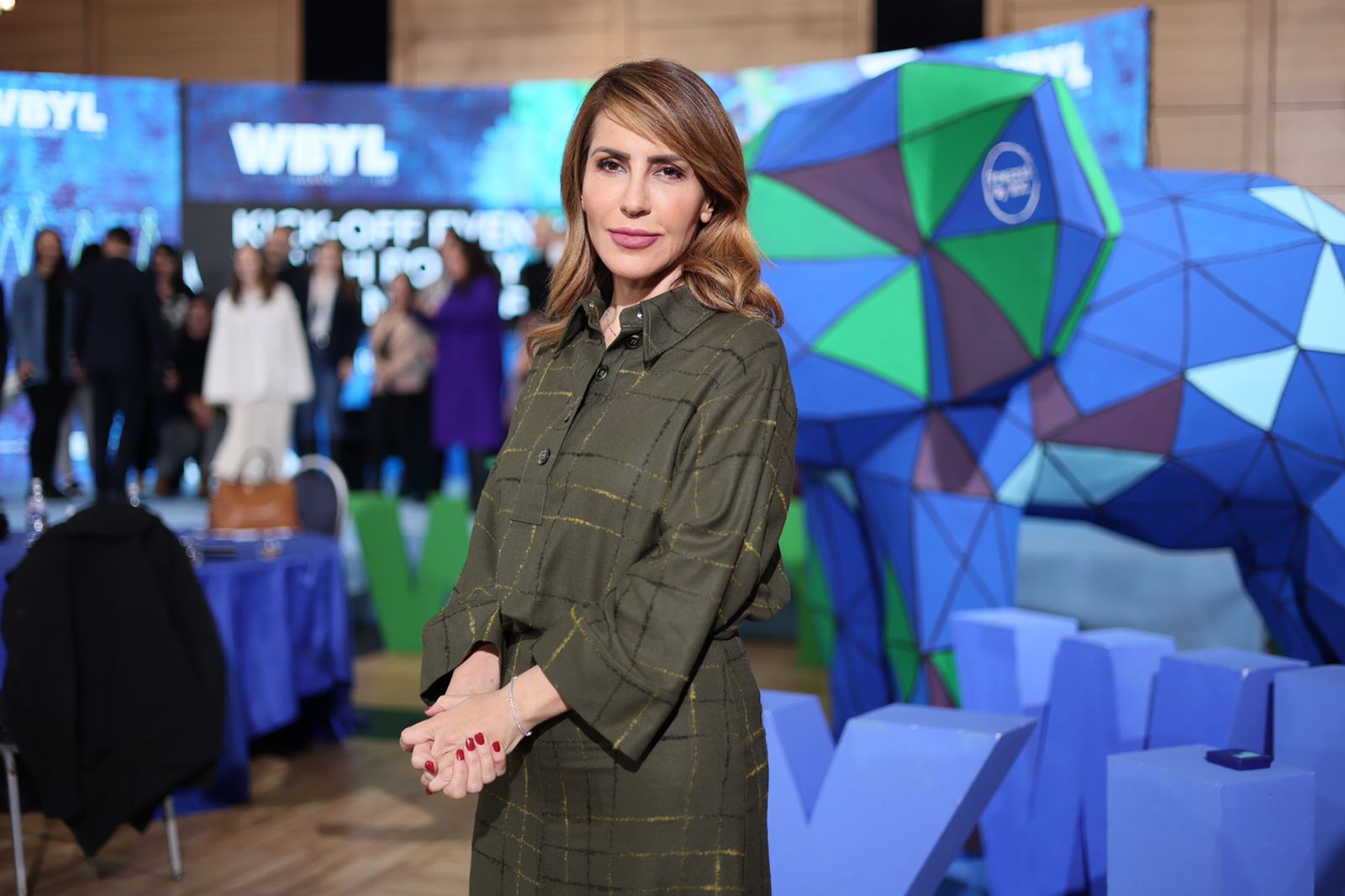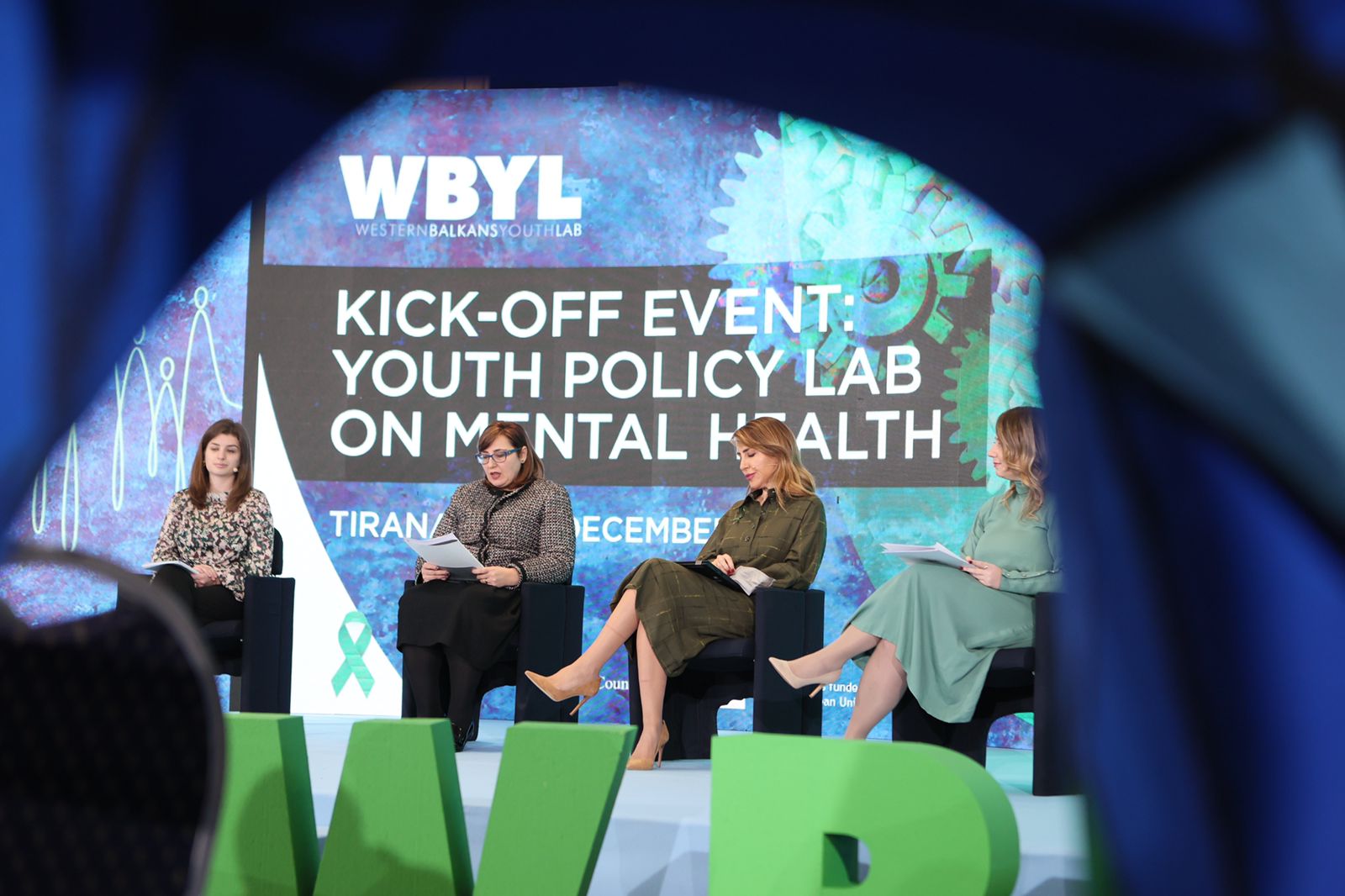Bregu: By risking the youth potential we are risking the engine of a sustainable regional future
10 December 2021

RCC Secretary General Majlinda Bregu at the closing of the Youth Lab on mental health, in Tirana on 10 December 2021 (Photo: RCC/Ani Media)

Closing remarks at the Youth Lab on mental health in Tirana on 10 December 2021 (Photo: RCC/Ani Media)
RCC’s Youth Lab on mental health brings out regional recommendations
Tirana/Sarajevo – “Statistics tell us that two thirds of young people would be willing to emigrate; that the total education costs of people who leave the region in one year vary from 840 million to 2.46 billion EUR; and that about one fifth are unemployed and nearly a quarter are neither in employment, nor in education or training. But the comprehensive transformation of the region cannot take place without youth. If we risk wasting their potential, we are risking the engine of a sustainable regional future,” said Secretary General of the Regional Cooperation Council (RCC) Majlinda Bregu at the closing of the Youth Lab on mental health today in Tirana.
“But figures are more than simple numbers. They are real-life, everyday experiences which young people face. Their frustrations and our inability to address them cripple the entire societies in our way forward. The only way to change this is by providing the young people with their rightful place in decision-making processes. In short - we can only work for youth if we work with youth,” added Bregu.
The event, organised by the RCC’s Western Balkans Youth Lab (WBYL) project, has gathered close to 50 youth representatives from the region, as well as policy makers and representatives of the European Commission. Over the two days the participants discussed the topics of mental health and brought out 13 regional recommendations envisaging how to raise mental health awareness, support measures and communicate importance of prevention of mental health of young people. The recommendations were endorsed by all members of the Regional Pool of Experts.
“Depression, anxiety, behaviour disorders affect more young people today than two years ago and we must not lose sight of the fact that the period from age 12 to 25 remains a critical time of brain development and maturation. Social media keeps promoting the strong, beautiful, rich, even the bullies, but does not provide coping mechanisms, interpersonal skills or ‘psychological distancing’ (that is, encouraging a person to adopt an objective perspective on negative thoughts and feelings). Both the experiences our young people face now and the support they receive from us in coping with and navigating these challenges will have profound impacts on their abilities to be successful adults, parents, and citizens for years to come,” concluded Bregu.
Together with Ms. Bregu, closing remarks were delivered by the Deputy Minister of Health and Social Protection Denada Seferi, Director of WHO Division for Country Health Policies and Health Systems Dr. Natasha Azzopardi Muscat, Adviser for Human Capital Development, European Commission, Directorate-General for Neighbourhood and Enlargement Negotiations, Adrienn Kiraly, Young European Ambassador (YEA), Kosovo*, Egzona Bexheti and Secretary General of the National Youth Council of Serbia Miljana Pejic.
Addressing the elephant in the room: Mental Health
***
Western Balkans Youth Lab is structured to bring together young people and policy makers in order to create policies that reflect the needs of young people. First Youth Lab was held on the topic of employment, while this, the second one, focuses on mental health of young people.
The WBYL is a 3-year project implemented by the RCC and financed by the EU that strives to create a longer-term structured regional dialogue between youth organisations and national administrations focused on jointly devising policies which will increase youth participation in decision-making, and to improve the overall socio-economic environment for and mobility of youth in the Western Balkans economies through different types of activities.
More on RCC’s Western Balkans Youth Lab here.
*This designation is without prejudice to positions on status, and is in line with UNSCR 1244/1999 and the ICJ Opinion on the Kosovo declaration of independence.




